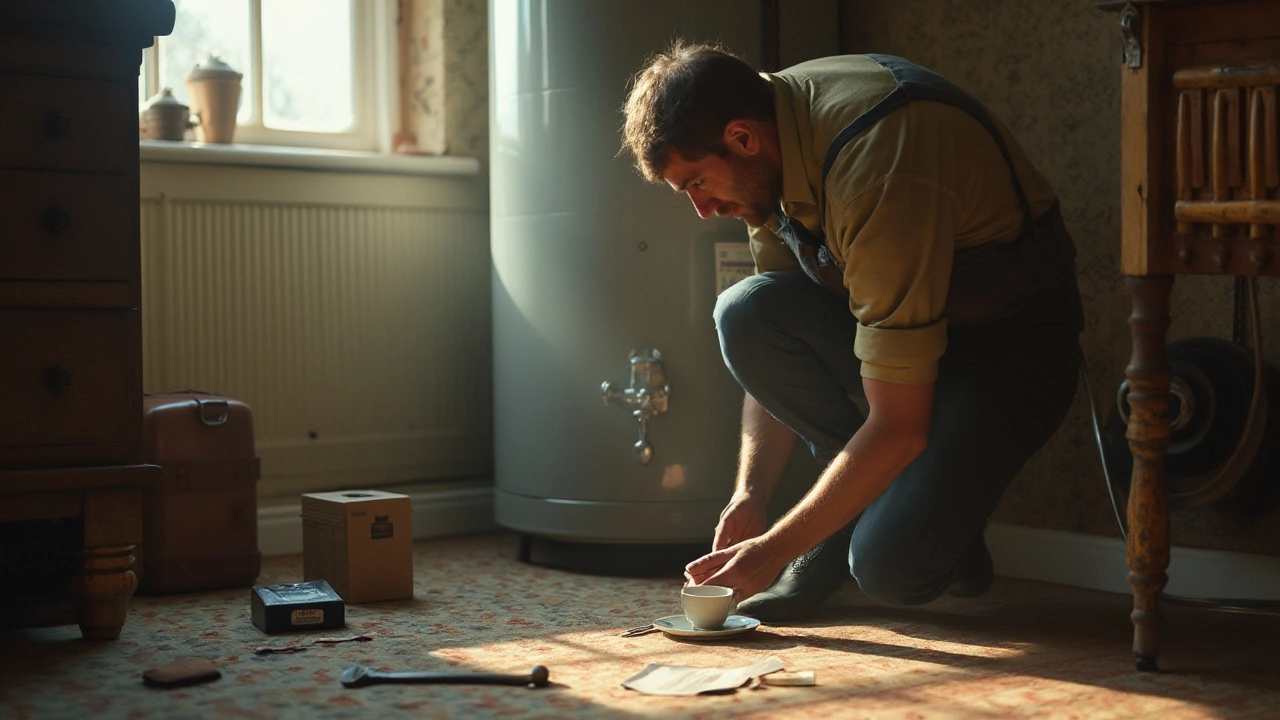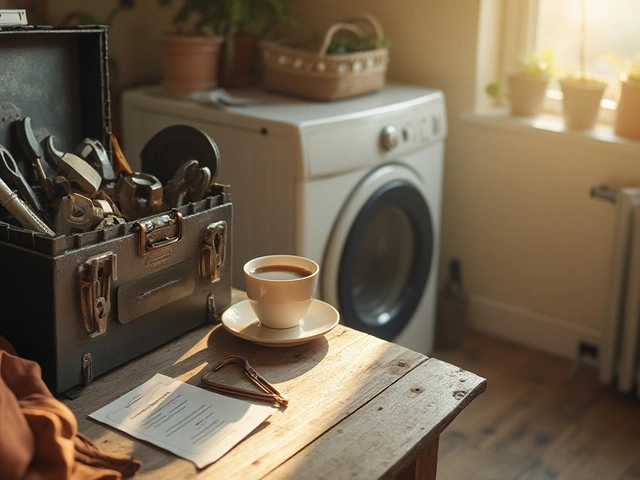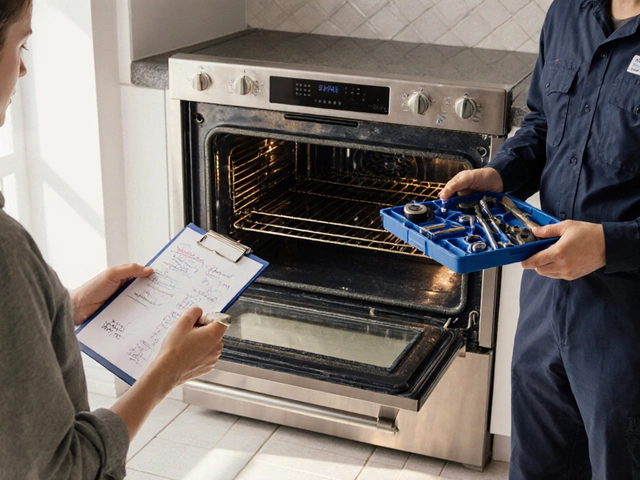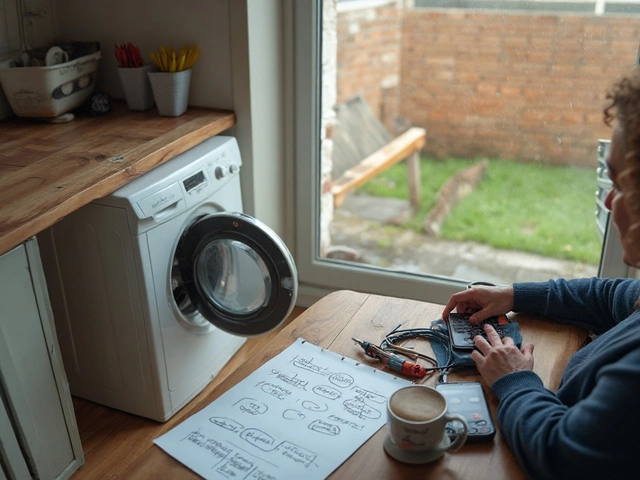Water heaters are essential yet often overlooked components of home comfort. They're responsible for providing hot water for showers, dishwashing, laundry, and more. However, like all appliances, they can run into problems, with leaks being one of the most common and potentially damaging issues homeowners face.
Knowing where to look when your water heater starts showing signs of leaking is crucial. By familiarizing yourself with the typical leak points, you can quickly diagnose the problem and take appropriate action. This not only saves time and money but also helps prevent potential water damage. In this piece, we'll dive into the most vulnerable areas of a water heater for leaks and offer practical tips for managing and repairing them effectively.
- Identifying Leak Points
- Common Causes of Water Heater Leaks
- Preventive Measures for Leak Prevention
- When to Call a Professional
Identifying Leak Points
When it comes to identifying where a water heater leak is originating, being methodical is key. By understanding common leakage areas, homeowners can swiftly narrow down the possibilities and implement a fix. One of the primary suspects is the pressure relief valve. This crucial component ensures that excess pressure inside the tank doesn't lead to explosions, but a malfunctioning valve can cause water to leak out, often unnoticed until a puddle forms underfoot.
Another potential source of leaks is the drain valve. Located near the base of the tank, the drain valve allows for the removal of sediment and water during maintenance. Over time, the valve seal can degrade, leading to slow drips or even a steady trickle of water. Both time and corrosion act as silent foes, slowly eating away at the integrity of seals and connections, often without visible signs until it's too late.
Atop the tank, the inlet and outlet connections are vital areas to inspect as well. These pipes bring in cold water and send out hot water, and any inconsistency in the tightness of their fittings can lead to leaks. Gaskets that have worn thin or connections that weren't properly installed can develop leaks over time, compromising the heater's efficiency and raising concerns of water damage.
Checking the Tank Itself
A more insidious source of leaks is the tank itself. Over years, mineral build-up and corrosion can create tiny holes in the tank's structure. While less common, an internal leak often signals the end of the tank's life span and may require a full replacement. Being observant of rust stains or dampness around the heater can serve as early warning signs.
Sometimes, it's not the water heater at fault but the actual connections within the piping system. A wise plumber will always evaluate the nearest joints and connections to the heater, ensuring leaks aren't being transmitted from external plumbing problems. A thorough check can mean the difference between a minor adjustment and a major headache.
"Don't wait for the drip to become a flood," advises plumbing expert Sandra Ernst. "Routine checks can save a lot of trouble and expense in the long run."
Identifying a water heater leak can feel like modern-day sleuthing — patience and attention to detail count as much as any special tool. Armed with curiosity and perseverance, homeowners can proactively address problems before they escalate, preserving both the appliance and peace of mind. When in doubt, consulting a skilled professional ensures a long-lasting fix and confidence in one’s home systems.

Common Causes of Water Heater Leaks
Understanding why a water heater leak occurs is crucial for both resolving and preventing the issue. There are several factors that can cause leaks. First, consider the issue of time. A water heater, like many other household appliances, wears down with use. As the interior lining of a tank erodes over the years, it can lead to cracks or holes which cause leaks. These kinds of problems are often inevitable, primarily influenced by the quality of water, frequency of maintenance, and the working pressure inside the tank.
Another common culprit is corrosion. Water and steel tanks don't mix well without a protective layer between them. This is why most tanks have an internal lining made of materials that resist rust. However, once this lining succumbs to wear, the steel tank is exposed to water, leading to corrosion over time. This process is hastened if the anode rod—a component designed to attract corrosive elements—isn't replaced when needed. Regular checks and timely anode rod replacements can significantly extend the life of your water heater.
Cynthia Adams, a renowned plumbing expert, once said, "Ignoring that tiny drip can turn into a pricey mistake. Regular inspections are not just good practice, they're necessary."
Loose drain valves are another source of water heater leaks. This valve is located at the bottom of the tank, and over time it may not close tightly, either due to sediment buildup or wear. What might start as a drip could easily escalate into a more serious leak if left unattended. This issue underscores the importance of periodic checks and timely valve replacements when necessary. Properly functioning drain valves are crucial not just for leak prevention, but also during tank maintenance like flushing out accumulated sediment.
Pressure Relief Valve Issues
The temperature and pressure relief valve is a vital safety feature in a water heater. It releases water when the temperature inside the tank becomes too high, preventing a potential explosion. If this valve becomes faulty, it might release water constantly, leading to leaks. The underlying issue could be a malfunctioning valve or excessive pressure in the tank. In such cases, it's crucial to address not just the leak but the cause of pressure buildup to ensure optimal safety and avoid recurring problems.
Last but not least, incorrect installation is a factor that can't be ignored. Poor installation could lead to improperly sealed connections, which inevitably result in leaks. It is vital that water heaters are installed by professionals who understand the nuances of plumbing systems. Amateurs might not have the necessary knowledge of pipe fittings or the optimal positioning for minimizing stress and leaks. Paying attention to the expertise of those handling installation can save a lot of headaches and expenses down the line.
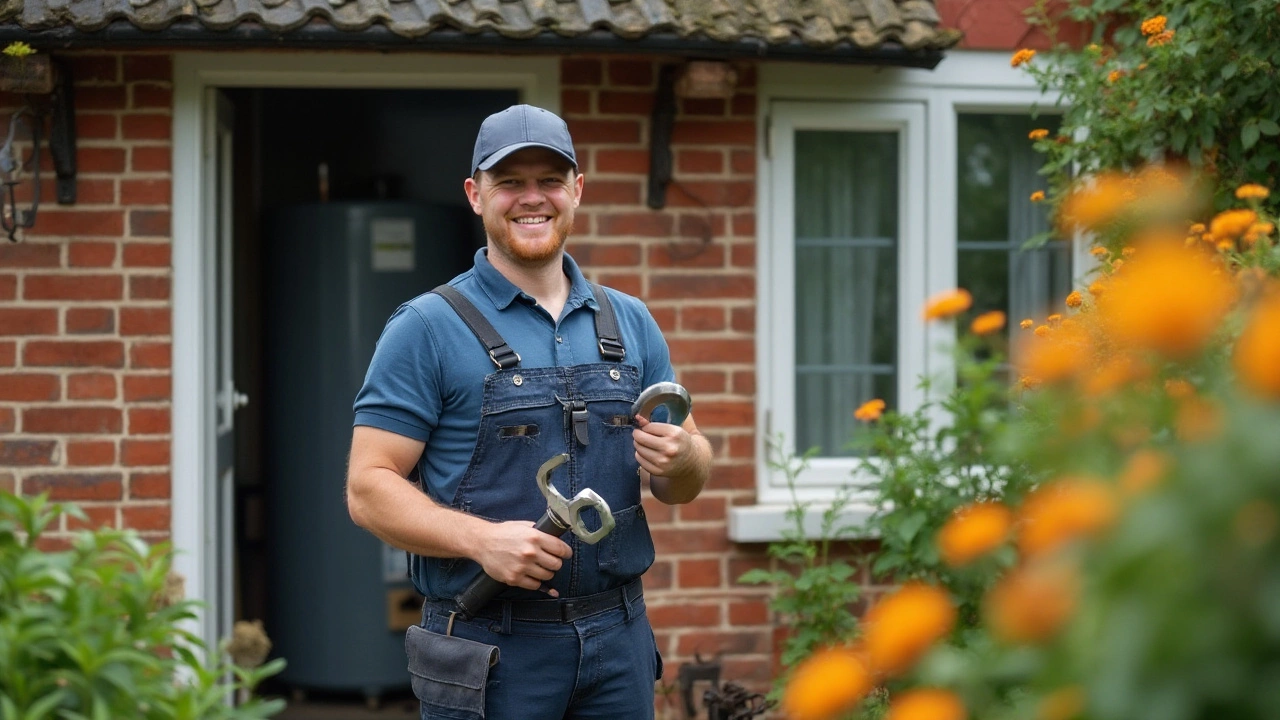
Preventive Measures for Leak Prevention
Proactively addressing potential water heater issues is a wise move for any homeowner. Regular maintenance not only safeguards against unforeseen leaks but also extends the life of your water heater, ensuring efficient performance over time. A routine inspection regimen, which entails both visual and hands-on checks, might just be the answer to preventing those unexpected water heater leak scenarios. A good start is to inspect all visible piping connections for moisture or corrosion. Over time, these areas can succumb to wear due to continuous water flow and temperature fluctuations.
That said, sediment buildup is often the unseen culprit behind many water heater problems. Especially with hard water, minerals tend to settle at the bottom of the tank. This sediment not only decreases efficiency, leading to potentially higher energy bills, but can also introduce stress to the tank lining, paving the way for leaks. To combat this, periodic flushing of your water heater is advised. Simply turn off the power, connect a hose to the drain valve, and let the water and sediment flush out. It's straightforward, but if you aren't confident, consulting a professional might be a sound alternative.
"Prevention is always better than cure, especially where water heaters are concerned. Regular maintenance can protect your home from extensive water damage," asserts Jane Doe, a seasoned expert in home maintenance and author of 'The Definitive Guide to Home Appliances'.
Beyond routine checks and maintenance, considering external factors can be equally important. Many homeowners overlook the impact of their home's location and climate. For instance, extremely cold temperatures can lead to the freezing of heater pipes, causing them to burst. Installing insulation blankets for the heater and thermal tapes for external pipes is an effective way to tackle such issues. Additionally, ensure your heater's thermostat is set correctly. While it might be tempting to crank up the temperature for hotter showers, doing so can strain the system, increasing the chances of wear and tear.
Another essential yet simple preventive measure is regularly checking the anode rod. This unsung hero plays a pivotal role in protecting your water heater. Its sole purpose is to attract corrosive elements, sacrificing itself to shield the tank from rust. Typically, inspecting the rod every couple of years and replacing it as needed ensures the longevity of the tank. Moreover, preventing leaks isn't just about reacting to problems; it's about forward-thinking. Installing a water softener for homes with hard water can minimize mineral deposits, further curbing potential leakage issues.
Lastly, integrating modern solutions like leak detectors can act as an additional safeguard. These devices sound an alarm upon detecting water in places it shouldn't be, allowing homeowners to act promptly. Many modern systems even connect to smartphones, providing alerts regardless of where you are. Investing in such technology offers peace of mind, knowing that you have an additional layer of protection for your home's plumbing infrastructure. A collaborative approach combining regular check-ups, technology, and awareness can be the best strategy against unexpected leaks.
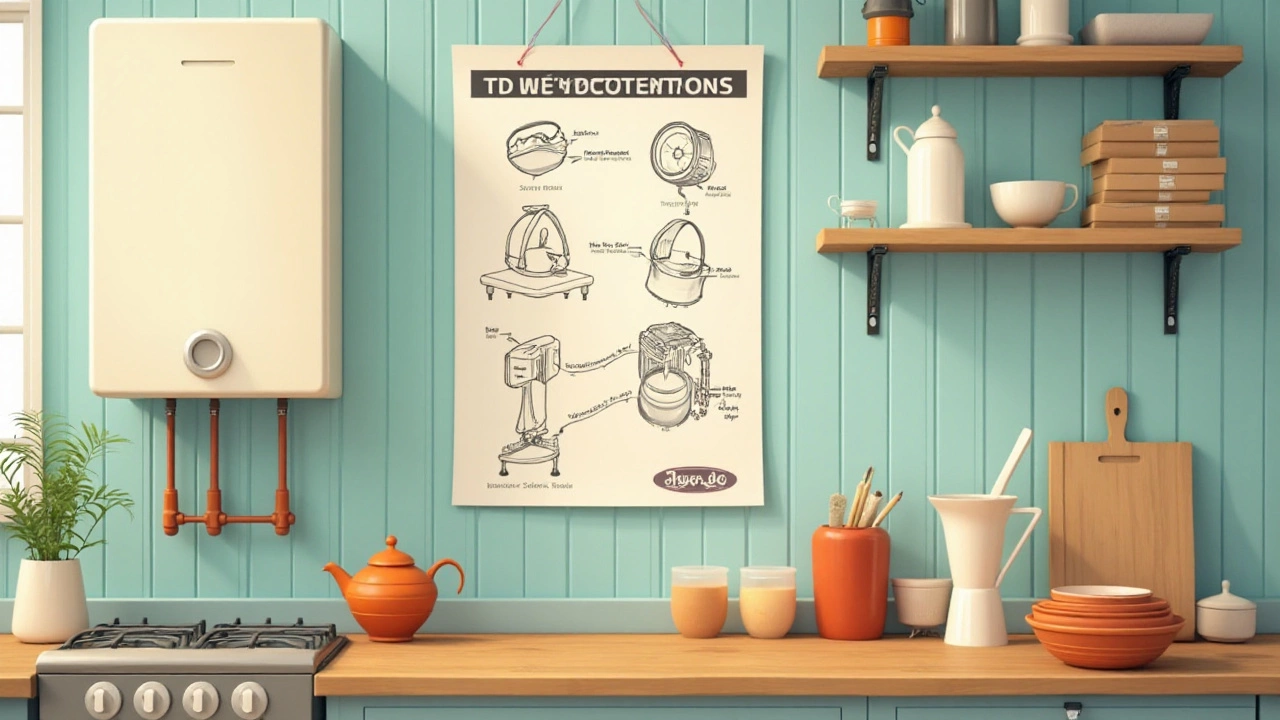
When to Call a Professional
At some point, every homeowner faces the dilemma of whether to tackle a repair themselves or call in the pros. Water heaters, while not overly complex, demand respect and understanding. Attempting a repair without proper expertise can sometimes lead to bigger problems. It's vital to recognize the tipping point between a DIY fix and professional intervention.
One certain sign to reach for the phone is when you spot water seeping from areas that seem more than just a loose valve or fitting. Persistent leaks at the tank base, for instance, could mean the tank is deteriorating or rusting. Expert plumbers have specialized tools to diagnose whether it's a fixable issue or something that needs more serious attention. A faulty temperature and pressure relief valve is another sure signal. This part is crucial in preventing excessive pressure build-up inside the water heater, and when this component fails, it risks a blowout. Professionals will be aware of the correct specs and settings to replace or repair it safely.
"A water heater problem can turn into a nightmare if not handled timely and correctly," says a renowned plumbing expert from 'Today’s Homeowner'.
Corroded connections or significant rust formations are also red flags. Corrosion isn't a surface issue—it's an indication of possible internal damage or impending leaks. Professionals have the expertise to assess the extent of such damage. Subtle signs, such as inconsistent water temperatures or hot water running out too quickly, might not seem urgent but can point to failing heating elements. Diagnosing electrical or gas issues requires expertise, and tampering without knowledge could pose safety hazards or even violate local codes.
The presence of discolored or smelly water is an often-overlooked sign. Such irregularities may hint at bacteria growth inside the tank or a failing anode rod. Left unchecked, it could lead to water quality concerns throughout your home. Professionals can carry out a thorough inspection to pinpoint causes and suggest the best solution for your water heater leak issues.
Another reason to opt for professional help is time efficacy. Troubleshoot and repair might take an hour for an expert, but much longer for a novice. Moreover, an experienced technician gives you peace of mind, knowing the job is done properly. They also make considered recommendations about the lifespan of your heater, offering insights into whether a repair or replacement makes better sense.
Making informed decisions about when to call in experts can extend the life of your equipment and save you from untimely replacements and unforeseen expenses. Keeping emergency contacts handy is always smart. When in doubt, consulting with a professional will ensure the safety and reliability of your water heater for years to come.
